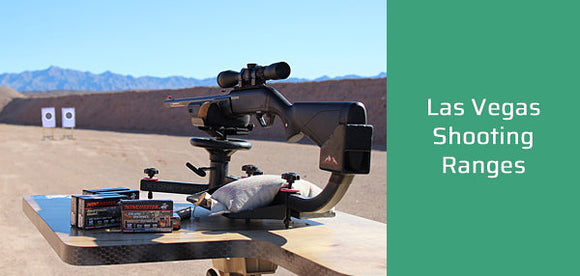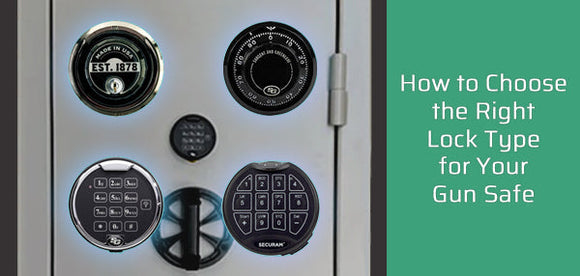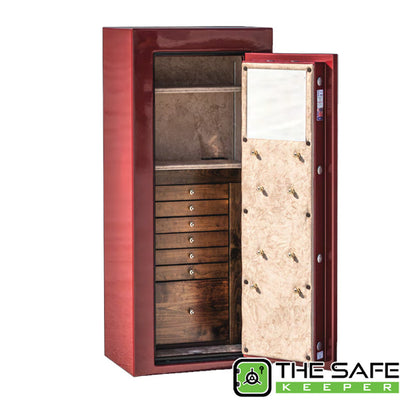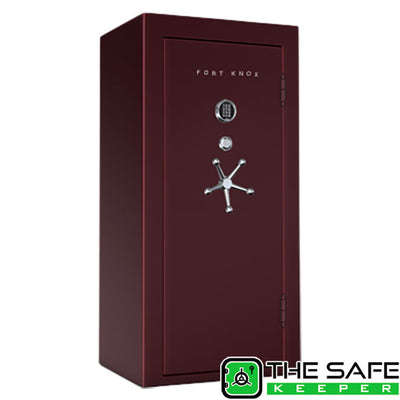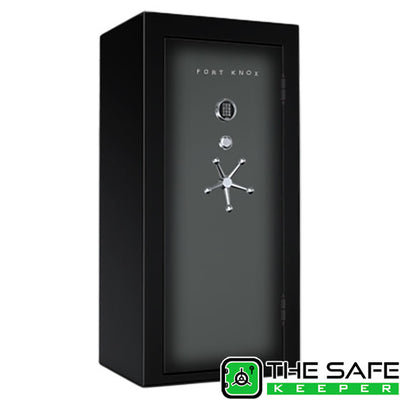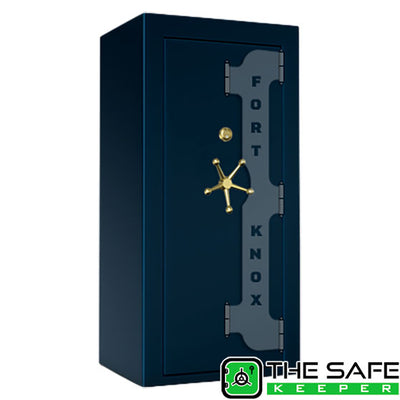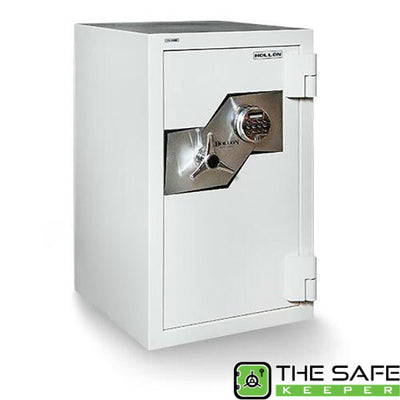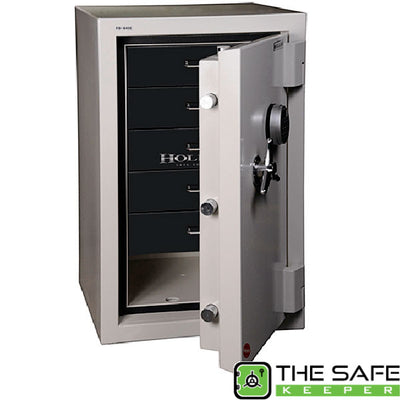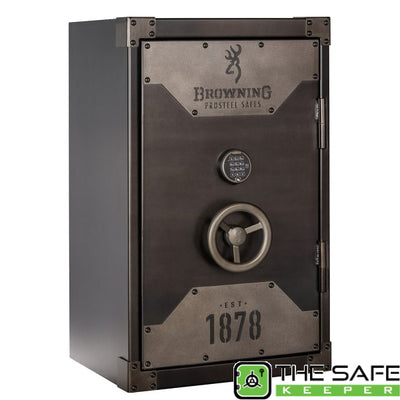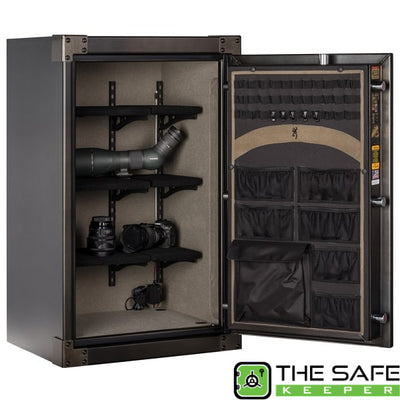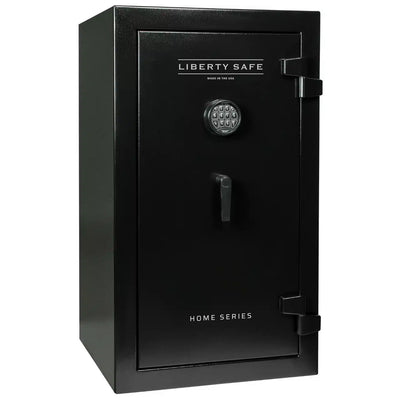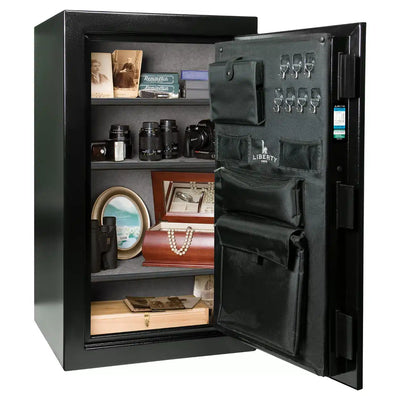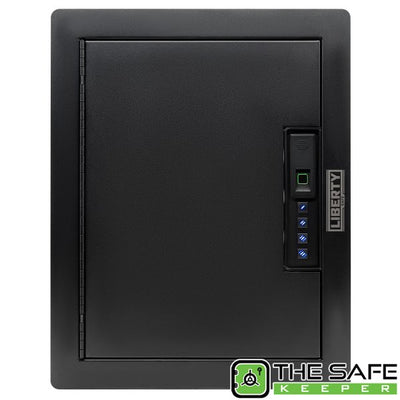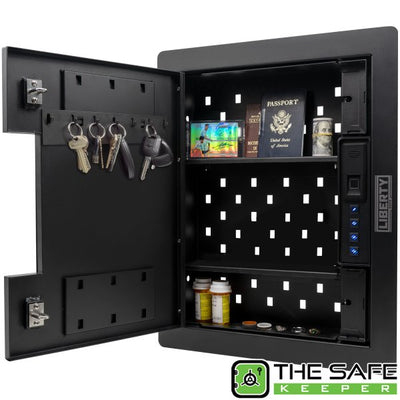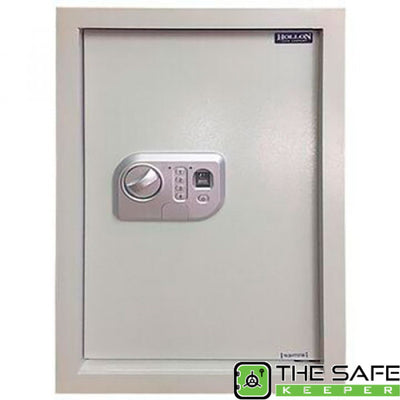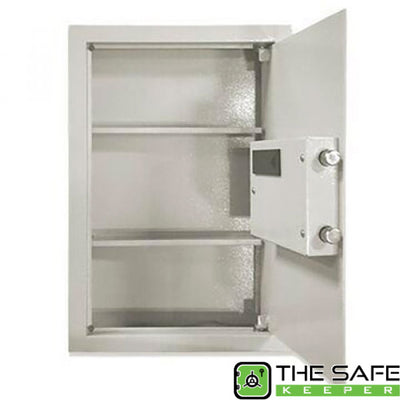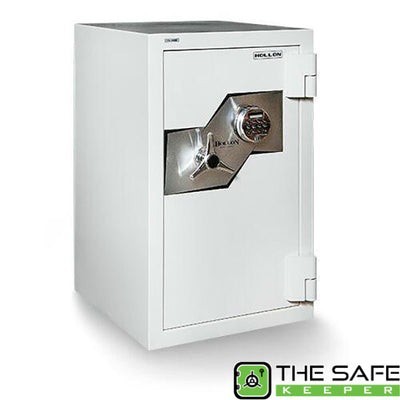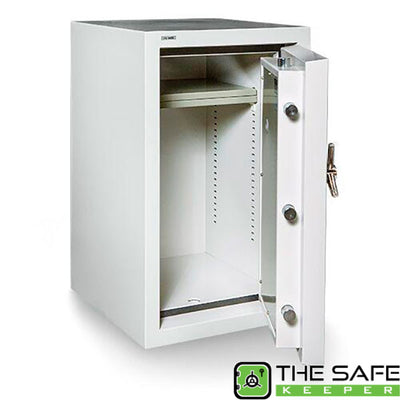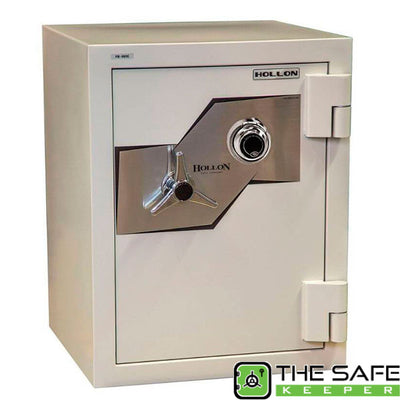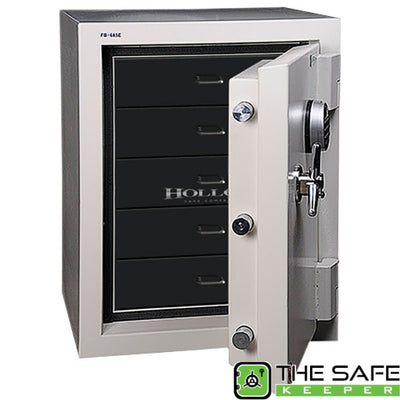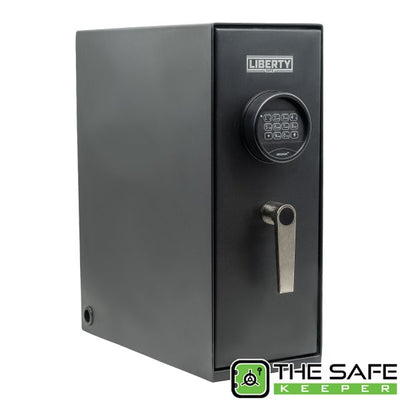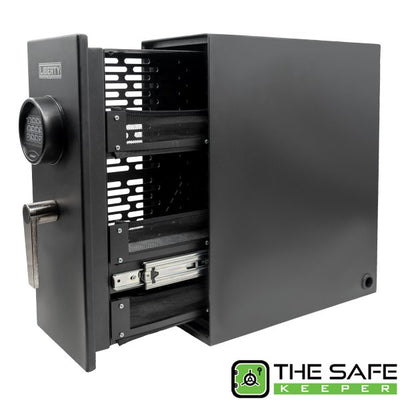10 Things To Consider When Buying a Safe for Home
Buying a safe for home is not as simple as it may seem. The purchase requires careful preparation, so that a new safe owner wouldn't face issues with using it later on. Furthermore, good quality safes are not cheap. Therefore, it is smarter to invest a bit more time and money intoto buying a safe that meets your needs, than to get any random vault and have constant issues and buyers remorse. So, what should you consider when choosing a home safe for your precious belongings?
Below, you will find a home safe buying guide that can help you find the answers to your questions.

1. Type of a safe
First and foremost, what you need to do is to answer a set of questions: Which items will you store in the safe? And hence, What safe do you need for those specific items? Some things look obvious. Safes intended for specific purposes are built with all necessary features for the purpose. If you need a storage for money or precious papers, you will focus on document safes; if you are looking for a secure place for your jewelry, you will look into jewelry safes and if you are an owner of handguns or rifles you will more likely look at gun safes.
However, what should you do if you need to buy one safe for various valuables? Then you need to consider some tips that will help you buy a secure safe for your diverse precious items.
- If you need to keep flash drives, discs, photos, a laptop and other devices you should buy a data & media safe. No other storage can provide a fire and humidity protection feature they have. These safes keep the temperature below 125 degrees F and the humidity below 85% on the inside. But you also need to take into consideration that such a type of safes do not offer robust protection from burglars.
- A wall safe is not the best one in terms of security. Even though, it can be concealed which gives it an edge over the others, it is made of thin steel that can be easily cut with a saw or any other tool in case it is found.
- A floor safe is really perfect for protecting valuables from burglars but on the other hand it has no fire retardant material in the door. It means that the contents of such safe will not be protected in case of fire.
2. Size, capacity & weight
Other features you need to focus on while selecting a home safe is: size, capacity and weight.
Once again, referring to your needs, you may opt for either a large home safe or a small home safe. From our experience we would recommend you buy a bit larger safe then you currently need. Future users generally underestimate their needs for safe capacity and then with time when they collect more valuables, they face the issue with lack of space inside the safe. But on the other hand, a large safe costs more and is more difficult to install. Thus, buying storage that much exceeds your needs is also not a good idea.
Moreover, a large heavyweight safe may cause problems with delivery and installation as your home construction may not meet the requirements needed for it. Meanwhile a lightweight safe can be placed anywhere.
3. Security
The highest priority feature is a burglary rating of your future safe. It identifies the level of security safes have. There are B-Rate, B/C-Rate, UL RSC, C-Rate, UL TL-15, UL TL-30, UL TL-30X6, and UL TRTL-30X6 ratings according to Underwriters Laboratory definitions. The ratings are given in increasing security order, starting from the least secure B-Rate and finishing with UL TRTL-30X6, which is almost a burglar proof safe. A high security burglar safe requires cutting-edge technologies and materials to be built and consequently, costs much more. On one hand, it gives the owner a peace of mind that their belongings are absolutely safe but on the other hand, it doesn't make any sense if it costs more than its content.
4. Fire rating
Fire rating shouldn't be overlooked either. It especially makes sense in case you would like to keep paper documents in your safe. The minimum protection from fire for home safes should be at least 30 minutes. Top rated fireproof home safes can provide up to 120 minutes fire protection at 1550 degrees Fahrenheit. However, fireproof home safe doesn't offer a high level of protection from burglars. If you want your safe to provide both strong protection from thieves and significant fire protection, then opt for a burglar fire safe or a high-security burglar fire safe.
5. Water resistance
One more important factor that should be considered while choosing a safe to buy is whether it can withstand water in case of flooding or fire extinguishing. There are fire and water resistant safes available for sale that incorporate both features. They have a seal around the door that protects from water, smoke and fire. So, buying water and fire resistant safes you may “kill two birds with one stone”.
6. Not all gun safes are created equally
Gun safes are the most popular safes on the market, as they are designed to protect from theft, fire and other damages. In some states and countries firearm owners are required to keep their guns in an appropriate, secure place.
Due to this reason, not all gun safes are equal. Some of them are just metal boxes.
However, if you want your storage to really protect your weapons and valuables, then opt for ones built from thick steel. A strong gun safe body is built from at least 11 and preferably 10 to 7 gauge steel, and ¼ inch or better a ⅜ - ½ inch steel plate in the door.
7. Type of lock
Type of locking mechanism is also a feature worth taking into account while selecting the best storage for home valuables. There are biometric lock safes, digital lock safes, mechanical lock home safes. The main advantage of a biometric lock is its unprecedented security, however, safes with such locks cost more than others. Electronic lock enables quick and simple access, doesn`t require a key to open it, and allows the owner to change the code frequently. But it needs a battery to work properly and it can cause some headache to a user to change it from time to time.
Mechanical lock is traditional and easy to use, especially a combination one. However, in order to change the combination, an owner needs to call a specialist to do it. In a nutshell, all types of lock have their pros and cons that should be considered by a future safe owner.
8. Placement of the safe
It can be a challenge to choose a good location for a safe. On one hand, it should be hidden; on the other, it should be easy and fast accessible. Furthermore, any storage should be installed in the place which meets the requirements regarding safe installation. It means that huge and heavy safes may not be allowed to be placed on the second floor in the middle of the room as they can damage the construction of the building. Safes are also not recommended to keep in the kitchen or places exposed to fire or moisture.
The best location for a safe is a garage, basement, or a closet on the first floor. However, a safe owner should consider a number of factors such as level of humidity, accessibility of the storage, etc.
9. Should your safe be anchored down?
Choosing a place to install a safe, the owner should take into account that a non portable safe requires to be anchored. A bolted down gun safe is less likely to be stolen or tipped over. The majority of safes are equipped with holes that enable easy anchoring.
10. Price
It is probably needless to say that the price range for safes is really wide. It depends on size, features, security level and dozens of other factors. However, there are different safes for different budgets: a future owner may choose either a small and cheap home safe or a large and luxurious home safe. It is up to the owner what safe to choose. But it makes sense to align the price for the valuables which you will keep in the safe with the robustness and reliability of the storage. The more precious your belongings, the more secure and hence, the more expensive your safe should be.
Conclusion
As mentioned above, buying a home safe is not as easy as it sounds, it requires some research and preparation. A future safe owner needs to invest time into choosing a suitable storage for the belongings and not buy a safe based on the low cost. However, a reliable and convenient safe will definitely pay off with a piece of mind that your precious possessions are in the right place.
Written by



